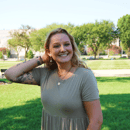For as long as I can remember, I have been attracted to both men and women. Even long before the middle and high school drama of relationships and sex, I remember wanting to dance with the girls and the boys in our elementary school functions. To this day, I recall my middle school crush (if you’re reading this Kelsey, hope all is well!) and wondering why I felt the same way about girls and boys. It was a feeling I suppressed for a long time partly because I didn’t know how my family react and I wasn’t entirely sure if that was how I identified. It wasn’t until high school that I had my first girlfriend after a long series of boys I thought I was madly in love with. I didn’t know who I was and I thought it started as a really really really close friendship. She made me feel comfortable with my emotions towards women and I finally was able to define my sexuality.

The complexities and issues with sex and sexuality that I’ve dealt with throughout my teens and early twenties were in part because bisexual people are stereotyped as a provocative person with a high sex drive. Expelling these stereotypes is essential to bi visibility and that’s why this day is so important to recognize.
Bisexuality Day is observed annually on September 23 to recognize and celebrate bisexual people, the bisexual community, and the history of bisexuality. This day also marks the start of Bisexual Awareness Week, which runs until 30 September. Bi Visibility Day was first observed at the International Lesbian and Gay Association (ILGA) conference in Johannesburg in South Africa.
But why is bisexuality visibility so important?
A 2017 study conducted by American University found that bi people face what researchers described as “double discrimination” – from both queer and non-queer community. ‘Bi people are often forgotten in the LGBTQ+ acronym, and our experiences assumed to be the same as lesbian and gay people’, according to Irene Lorenzo, Digital Engagement Lead at Stonewall. ‘Bi identities are frequently erased, or dismissed as something that doesn’t exist, by people both inside and outside the LGBTQ+ community. And biphobia can take many forms, including offensive myths, stereotyping and bi invisibility.’
That’s why Bi Visibility Day is so essential to tackling biphobia inside and outside the LGBTQ+ community. Launched twenty one years ago, every September 23, Bi Visibility is an annual celebration of bisexuality aiming to highlight negative misconceptions fueling biphobia. By dispelling damaging stereotypes and having more open conversations, Bi Visibility Day is all about creating safer spaces and ending discrimination.
‘We can all help support bi people by learning more about the experiences and challenges they face, and by tackling biphobia’, Lorenzo stated. ‘There’s still so much to do to ensure that all bi people are accepted without exception both within and outside of the LGTBQ+ community.’
To personally combat my fear of biphobia, my Bumble bio for the longest time read “no, I don’t want to be your third. If I wanted to disappoint two people at the same time, I’d have dinner with my parents.” Just a cute little mechanism to cope with my existential fear of being oversexualized on a dating app.
So, to the bisexual community, I see you, I hear you, and I stand with you!
Photos: Her Campus Media


